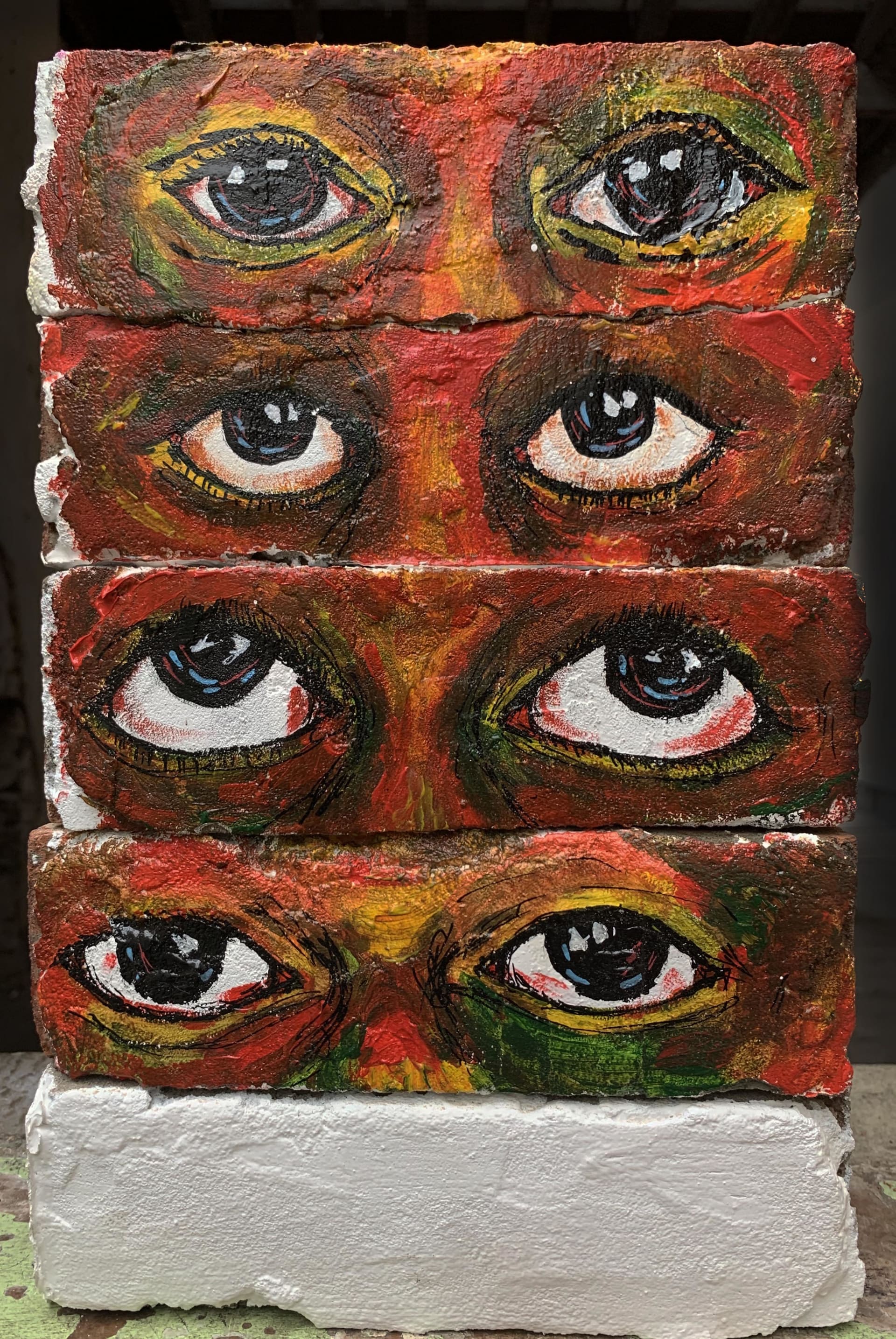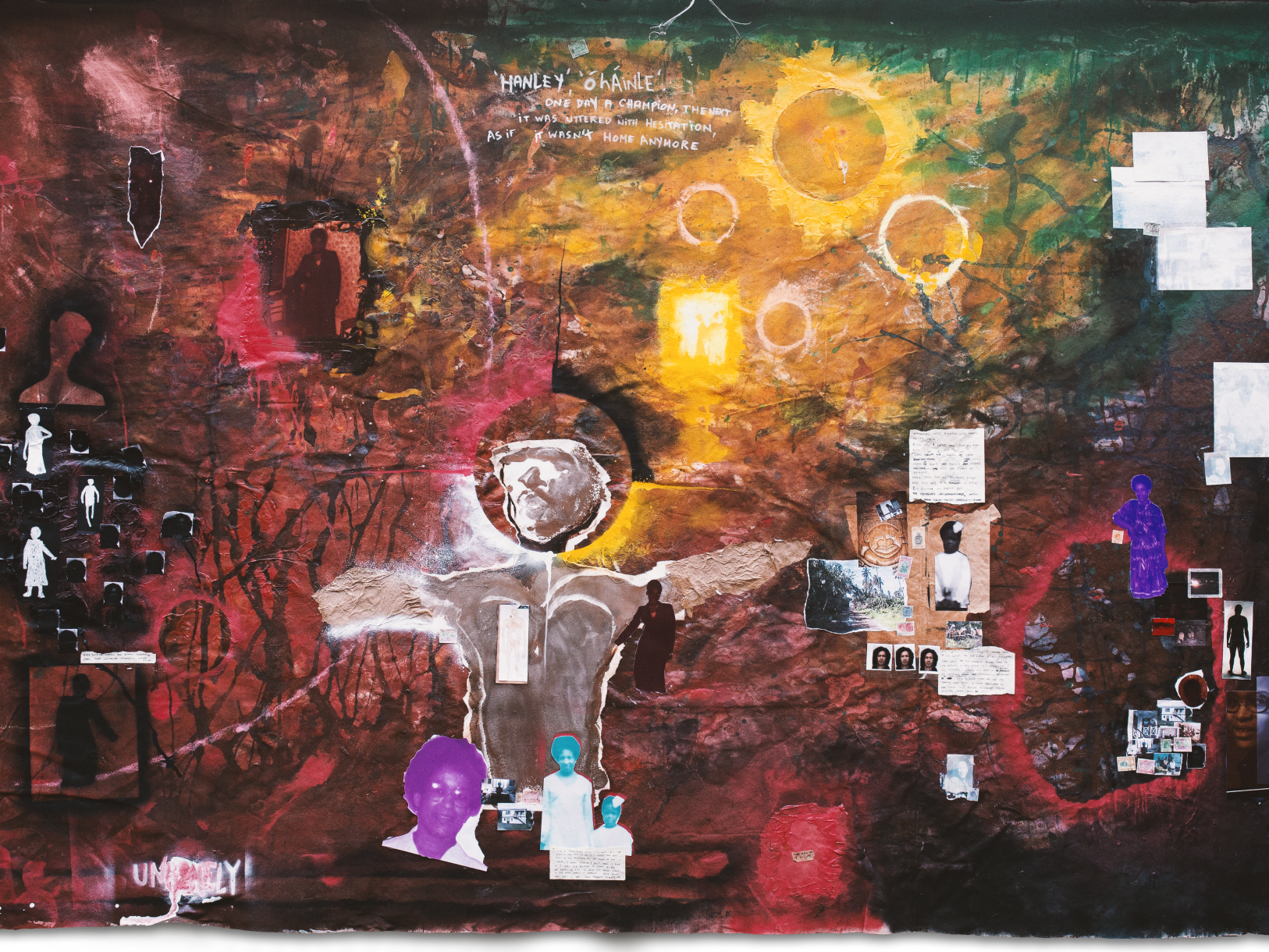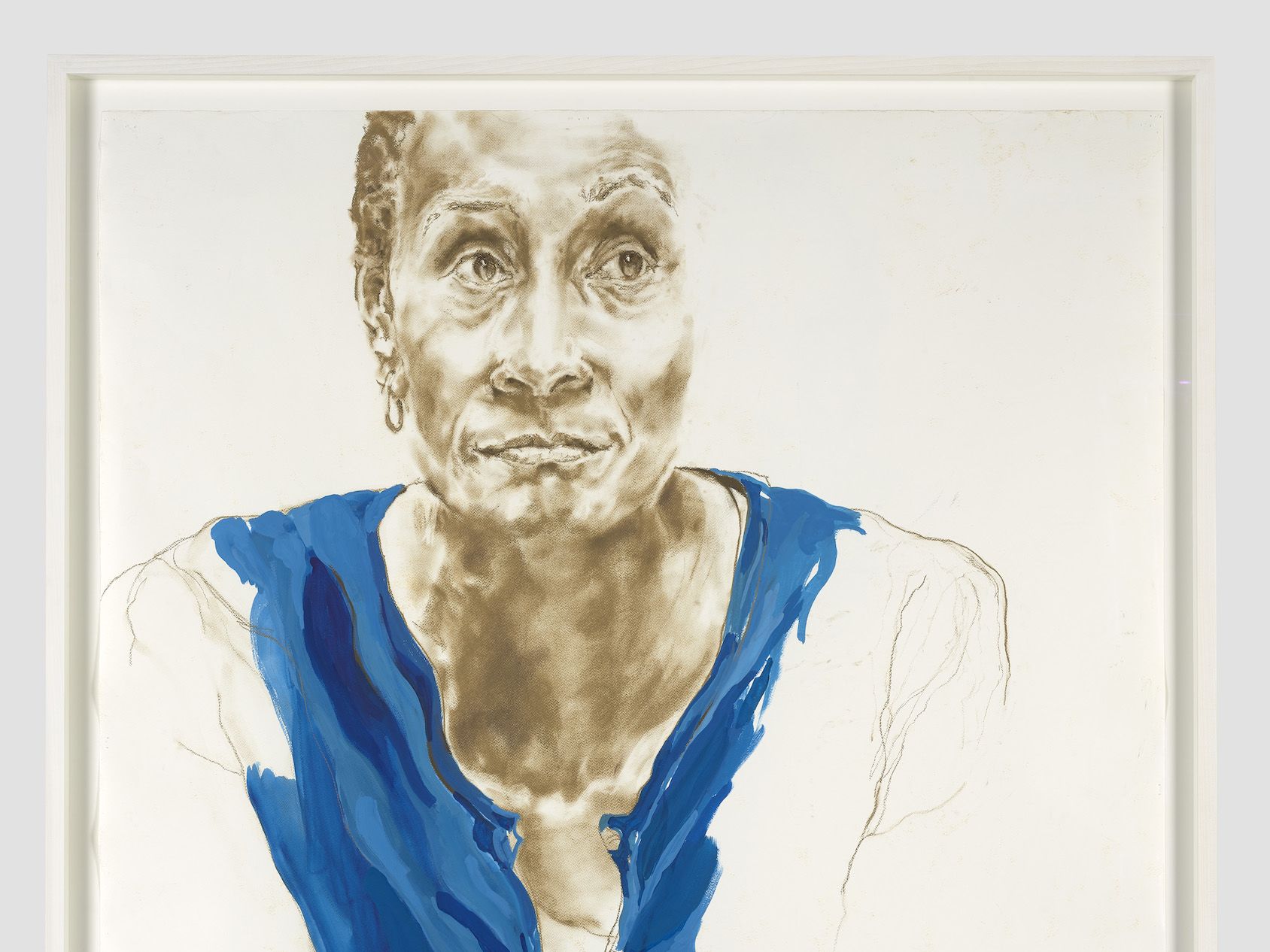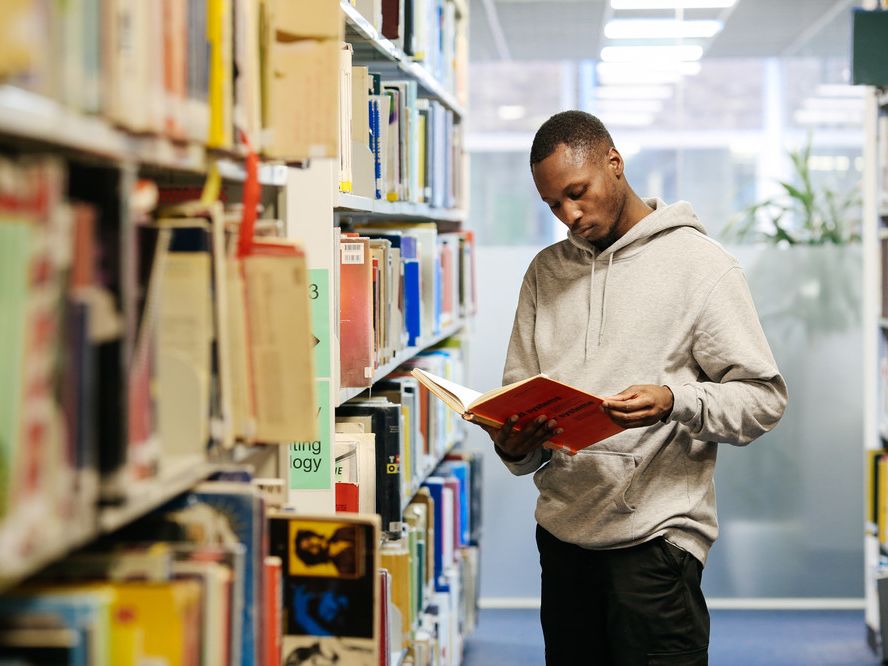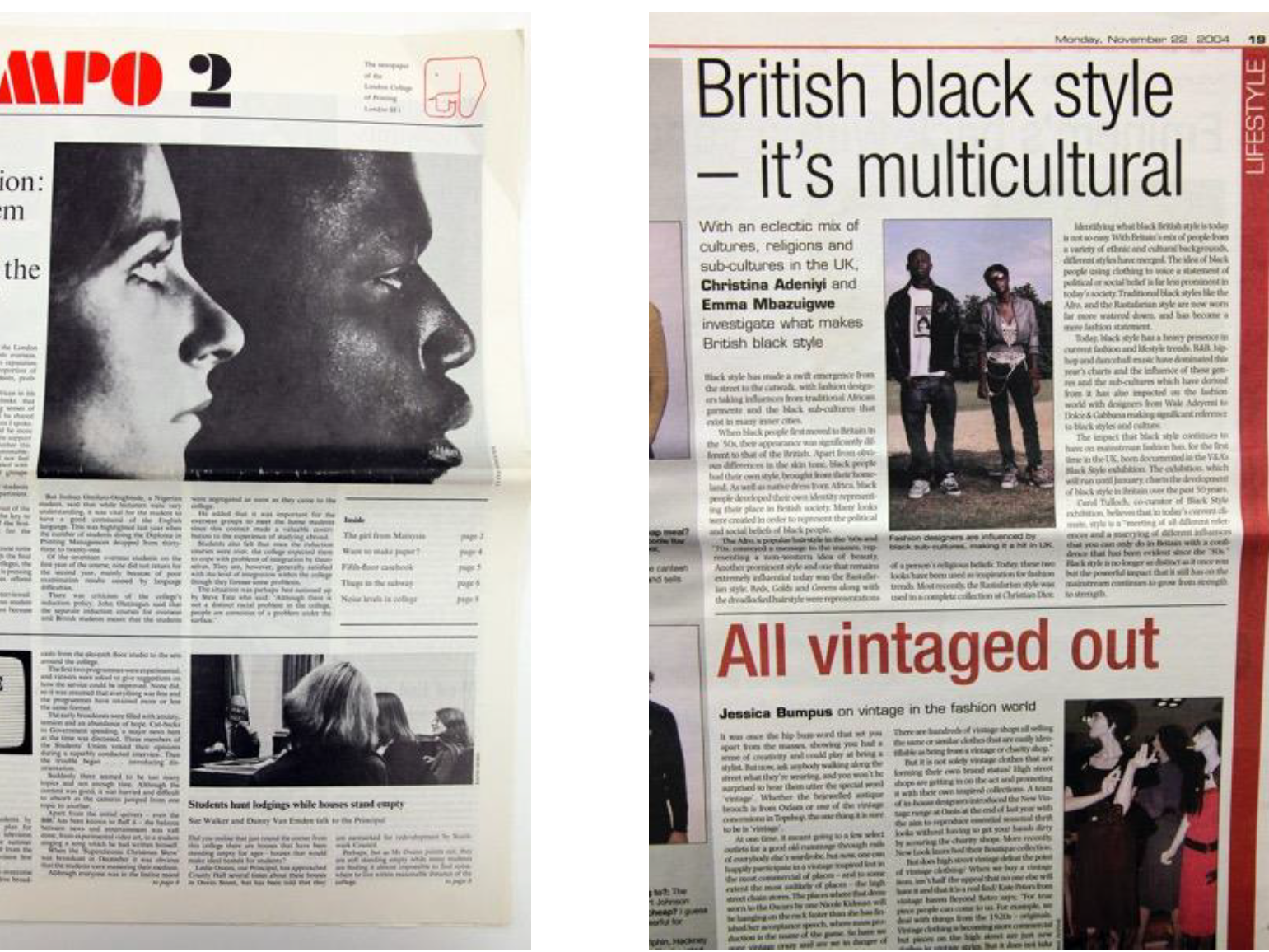The 2021 Decolonising Archives research residency programme led by UAL Decolonising Arts Institute in partnership with UAL Archives and Special Collections has been underway since March 2021. Dr Alice Correia, Dr Hannah Jones, Dr Nina Trivedi and Dr Michelle Williams Gamaker have been working virtually and physically to interrogate the African-Caribbean, Asian and African Art in Britain Archive, the Chelsea College of Arts Archive and Henry Moore Archive at UAL’s Chelsea College of Arts; and the Tell Us About It and Her Noise archives held at London College of Communication, UAL.
Following on from the 2020 programme, they are each leading original research projects that will culminate in a series of e-papers, presentations and other resources due to publish in late 2021. Alice, Hannah, Nina and Michelle share reflections on their investigations so far.

Alice Correia: "Place of Birth Unavailable" British-South Asian Women Artists and the Archive
“Initially I thought that my research utilising the African-Caribbean, Asian and African Art in Britain Archive at Chelsea College of Arts would uncover and critically analyse the work of women artists of South Asian heritage and their position within narratives of Black British Art. I had intended that my archival research would be framed by a discussion of the term ‘Black’, used here as a political signifier denoting the solidarity of non-white people working within an anti-racist struggle.
I started by undertaking an audit of who was included in the ‘Individual Artists’ section of the archive’s bibliography: Recordings, and I identified 26 women artists of South Asian heritage. However, despite the presence of these named artists, knowledge of the majority remains negligible; entries are characterised by missing details. This acknowledgement of missing information led me to refocus and retitle my project: “Place of Birth Unavailable” British-South Asian Women Artists and the Archive.
In thinking about missing information, I also started to think about ‘known unknowns’ and if, traces of uncatalogued artists could nonetheless be found. I also started to think about whether the archival listings for individual artists was commensurate to their contributions to artistic debates and curatorial practices – whether then or now – and what could I do to change that situation. Working in collaboration with the artists, my project will now focus on the work and archival trace of Symrath Patti and Raksha Patel.
I’ve had to accept that the few materials held in the archive at Chelsea about Symrath and Raksha may be of limited use with regard to the stories I want to tell. But working from the position that the archive is not a definitive repository of the past, but instead contains signposts for future investigations, my aim is that this project will pick up some of the loose threads. Outcomes will include interviews with both Symrath and Raksha, and online displays of their work and archival material. I hope this project will create a new repository that will stimulate future research.”

Hannah C. Jones: Deep Listening in the Archive: Unearthing O(Au)ral Resonances
“My doctoral thesis The Oweds is a series of audio-visual compositions concerned with ideas of decolonisation, through sound, decolonisation debt, reparation, personal, collective, institutional – cultural and financial. I applied for the Decolonising the Archives residency as it resonates so deeply with my ongoing cultural production. All its multifarious forms are centered around his word concept idea: Decolonisation.
The etymology of ‘archive’ is a combination of the ancient Greek ‘arkhē’, meaning ‘government’ and ‘arkhela’, meaning ‘public records', absorbing the Latin ‘archia’ and French ‘archives’ and arriving at the definition of ‘place where records are kept’.
The governance, gate-keeping, accessibility of these public records is super important in relation to the idea of decolonisation – who gets access? Who is gatekeeping? Who is permitted to occupy the archive? Who is taking up space in the archive?
Questions I’m asking myself are:
- How can institutional decolonisation take place within the cyclical nature of white supremacy – proximity to whiteness being privileged?
- What does it mean to try and produce this work when I am still wounded and healing from the stress, the absurdity, of my recent DPhil at Oxford?
- Why is there a specific kind of racism present in the art academy?
- Why is there a culture of writing about blackness without stating your relationship to it – spiritually, emotionally, logistically, philosophically and academically?
- How to engage in decolonising UAL, which itself replicates the very systems of oppression I (we) are trying to dismantle?
I feel I have an opportunity to amplify some underappreciated voices from within the UAL community though my residency. Moving forwards, I will be using the conceptual methodology of Chiron – the wounded healer - in how I begin to reach out to former UAL diasporic students featured in the Tell Us About It archive – the archive I was drawn to in that it documents diasporic students’ work but outsources to the excellent Shades of Noir – why has this archive been treated as less than, Other, to the rest of the archives?...
I include the key words of my recently awarded doctoral thesis The Oweds, these words are still intentionally echoing throughout my research:
ARCHIVE, AURAL, ANCESTRY, BLACK LIVES MATTER, BROADCAST, COMPOSITION, DECOLONISATION, DIASPORA, FREQUENCIES, HEALING, INTERDISCIPLINARY, MULTIDISCIPLINARY, MUSIC, ORAL HISTORIES, POLYPHONY, POLYVOCALITY, QUEER, RADIO, SONIC, TRANSCRIPT
Now I have successfully completed my doctorate, I am eager to delve into the rich archives, particularly the Tell Us About It archive …I have 2 interviews planned with past and present members of UAL – a former UAL MA student who attended Chelsea, and a current London College of Communication student…
I want to seek the resonances particularly in the African-Caribbean, Asian and African Art in Britain Archive and I’m excited to unearth further connections with my fellow researchers..."
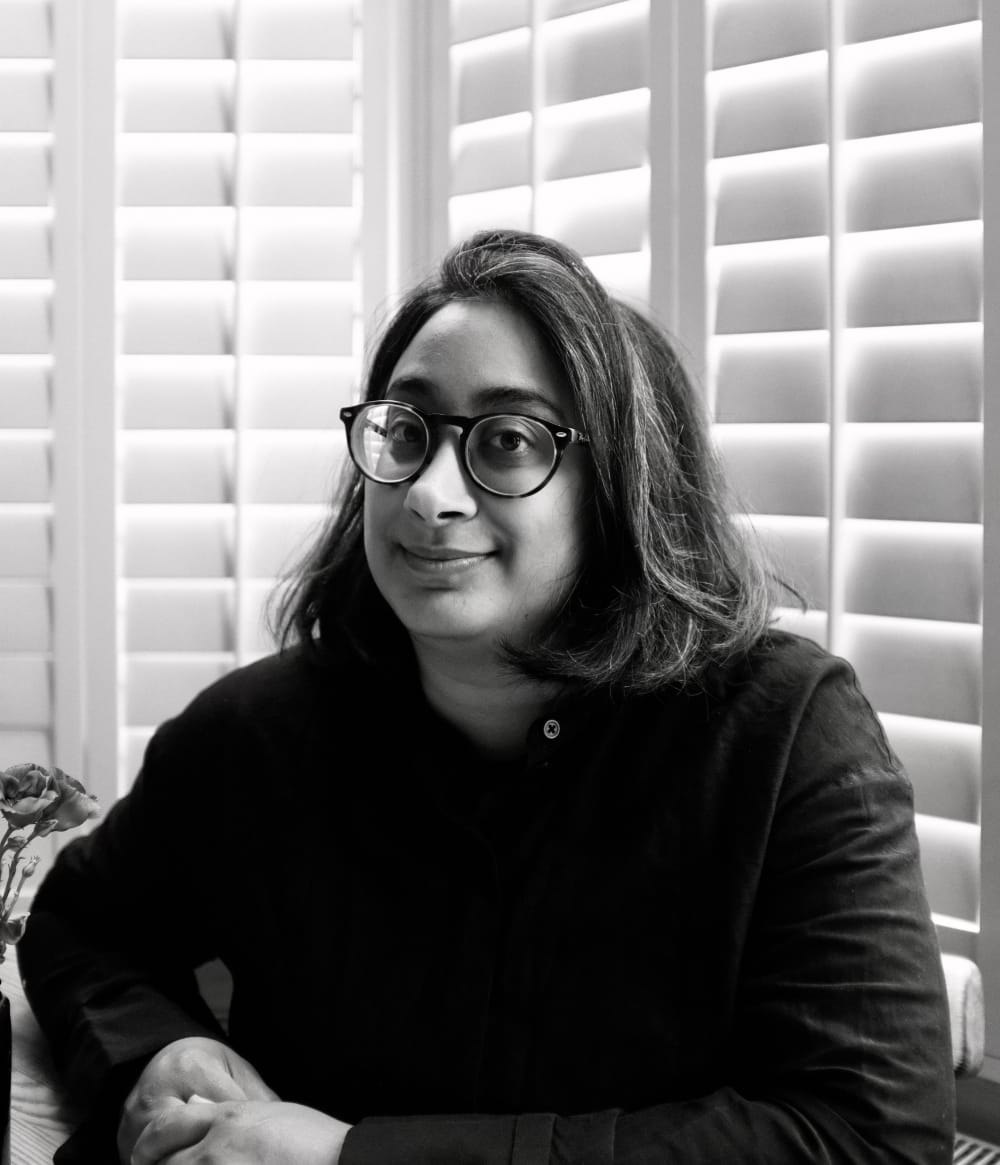
Nina Trivedi: 'Lost noise'
"'Lost Noise' examines the inclusion and representation of non-binary artists, women of colour, and whiteness in the Her Noise archive. I will be questioning how sound archives can examine excluded histories. My research considers the shift in the archive from the particular points of 2005 leading into 2011-2017 by specially looking at projects and conferences such as: the Sound, Gender, Feminism Activism conferences in 2014 and 2016, Her Noise Feminisms and Sonic, in 2012 and student led initiatives at London College of Communication. By utilising Karen Barad's framework of how material is treated as active and ongoing in its own historicity and material becomings; I will examine how the Her Noise archive is a living archive.
I have been rooting around the Her Noise archives based at London College of Communication, UAL, and in particular I have been focusing on the fanzine collections and notes about the initial exhibition. I had the chance to discuss my research with students from Chelsea's MA Curating and Collections programme. I was also able to hear about the students research and their work towards putting together an exhibition based on the archive. I have been continuously inspired by my fellow Researchers in Residence and relish in hearing about their ideas.
With my writing, I will be working with material storytelling by drawing inspiration from Saidiya Hartman’s critical fabulation and Ocean Vuong’s fiction writing. My project will culminate in the production of a series of four fanzines examining the fanzine collection within the Her Noise archive and a web-based project that explores audio collage, interviews, sound, and storytelling. The fanzines and web-based project will examine material histories, citation, reference, and the different engagements possible with the material other than representation."
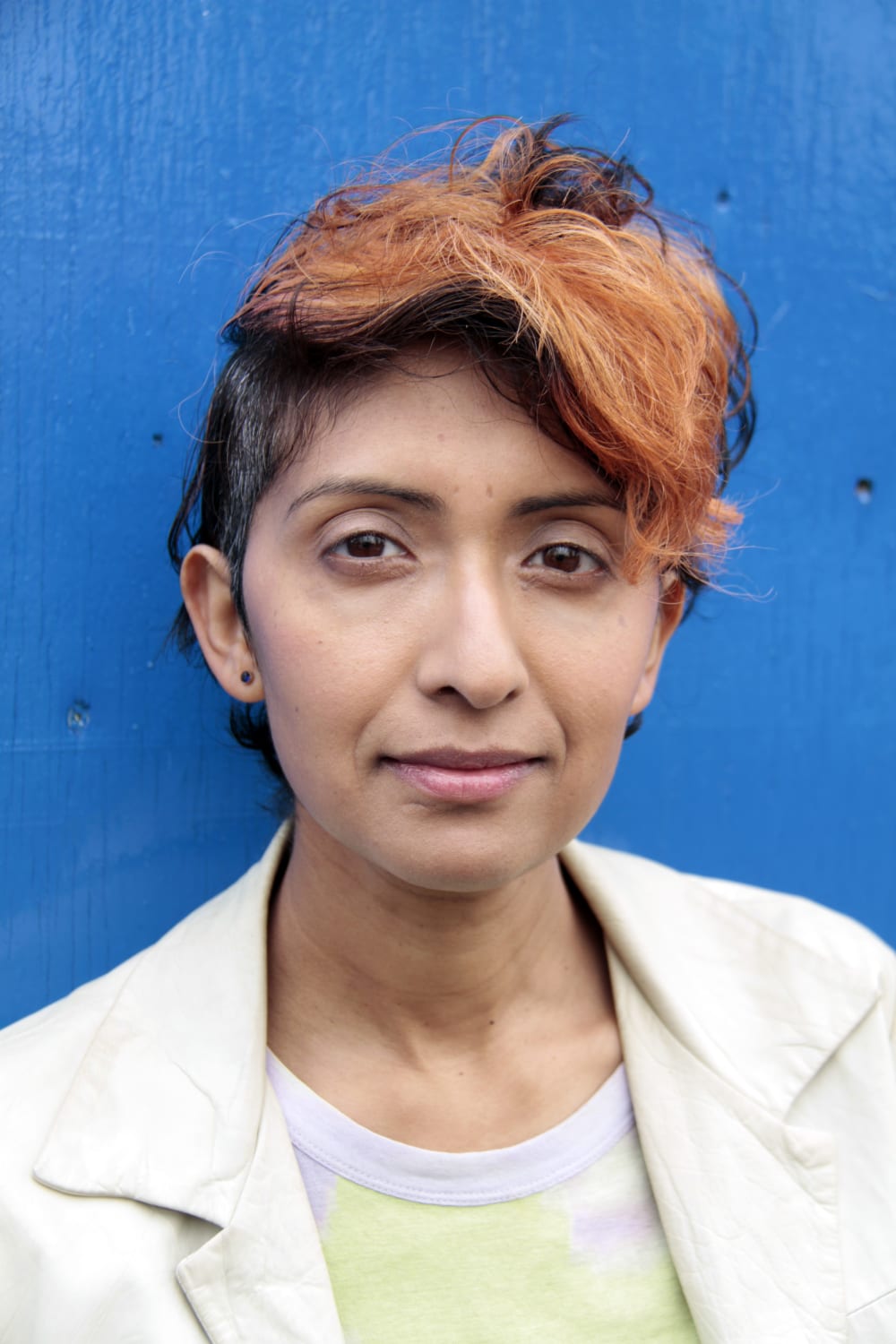
Michelle Williams Gamaker: “Knees and Breasts are Mountains”: The Art School Reimagined
"“Knees and Breasts are Mountains”: The Art School Reimagined continues my work in focusing on the experiences of artists of colour at Art School, by engaging with the UAL Archives and interviewing an intergenerational group of artists, who were either art students at Chelsea College of Arts, or have encountered the institution in the past as staff, student or artist.
I aim to accumulate accounts as well as glean information from the Chelsea College of Arts Archive and Henry Moore Archive stored at Chelsea Collections and Archives to create 3 scripts: one from 1965 (when Chelsea School of Art moved to its new home at Manresa Road); one from 1987, when a group of key contributors to the Black Arts Movement staged the exhibition ‘The Devil’s Feast’; and one from the present day, which looks at Chelsea College of Arts from 2021, in light of the pandemic and reflects on the experience for BIPOC students today.
Each script will delve into the archive, drawing upon the contributions of artists of colour, exploring different urgencies of the time with careful mix of transparency, speculative fiction, emotions and humour. Scriptwriting has become a vital tool in my practice as a filmmaker, and I am also enjoying what it enables me to think through as an academic.
Over the past months it has been wonderful to get to know my fellow Researchers in Residence. So far, we have still been using the online platform to connect on a monthly basis, but I am excited that this week I’ll be meeting Gustavo Grandal Montero, the Academic Support Librarian at Chelsea, for my first visit to the archive. I aim to begin scripting while sifting through the archive, to see how this affects my writing. I’m hoping the immediacy of encountering information from the archive will be felt and echoed in my scripting. This July, I also hope to connect with 6 graduating MA Fine Art students at Chelsea, and it would be wonderful if we can co-write the third script.
Once the scripts are complete, I hope to do a live reading with some of the participants as well as record the 3 scripts for the archive."
Biographies
Alice Correia is an independent art historian. Her research examines late twentieth-century British art, with a specific focus on artists of African, Caribbean, and South Asian heritage. She received her doctorate in Art History from the University of Sussex and has worked at Tate Britain and the Government Art Collection. In 2017 Alice was a mid-career Fellow at the Paul Mellon Centre for the Study of British Art and initiated her research project, Articulating British Asian Art Histories. She is Chair of Trustees of Third Text and co-Chair of the British Art Network’s Black British Art Research Group. Her articles and reviews have appeared in Art History; British Art Studies; and Nka: Journal of Contemporary African Art.
Hannah Catherine Jones (aka Foxy Moron) is a London-based artist, scholar, multi-instrumentalist, broadcaster and DJ (BBC Radio 3,4, NTS - The Opera Show), composer, conductor and founder of Peckham Chamber Orchestra – a community project established in 2013. Jones recently completed her AHRC DPhil scholarship at Oxford University for which the ongoing body of work The Oweds was presented as a series of live and recorded, broadcast, audio-visual episode-compositions, using disruptive sound as a methodology of institutional decolonisation and was awarded with no corrections. Jones has lectured/performed/exhibited widely, internationally, and recently showed Owed to Diaspora(s) at NIRIN - 22nd Biennial of Sydney.
Nina Trivedi completed a PhD in Critical and Historical Studies at the Royal College of Art where she is also a Visiting Lecturer in School of Art and Humanities. Nina’s research and writing explores the intersections of Critical Race Studies, Feminist New Materialisms and Visual Culture. She also lectures in MA Design at Goldsmiths and in the Department of Culture, Media & Creative Industries with Kings College London at Tate Modern. Recent lectures include the Ruskin School of Art’s Anti-Racist practice series.
Michelle Williams Gamaker is an artist, filmmaker and Lecturer in Fine Art at Goldsmiths. Her practice is often in dialogue with film history, restaging scenes to reveal their politically problematic, imperialist roots. Her work is a form of fictional activism to recast characters originally played by white actors with people of colour. Michelle is joint-winner of the Film London Jarman Award 2020 and is also recipient of the Stuart Croft Moving Image Award 2020 for The Bang Straws (2021).
